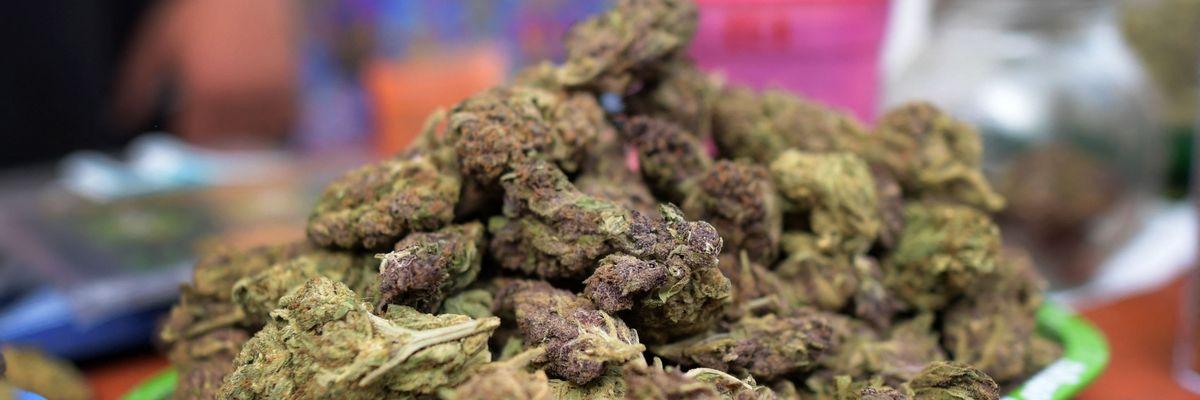As Democratic lawmakers push for the federal decriminalization of marijuana, U.S. President Joe Biden on Thursday announced the Department of Justice was formalizing a proposal to remove the substance from Schedule I—the legal classification which for decades has placed marijuana in the same category as heroin.
The Drug Enforcement Administration's (DEA) proposal to reschedule marijuana under Schedule III—which would place it alongside substances like testosterone and steroids—was submitted as a Notice of Formal Rulemaking in the Federal Register, commencing a 60-day public comment period.
After the comment period and any public hearings that are requested by interested parties, the DEA is expected to issue a final order on reclassifying marijuana.
In a video message posted to social media, Biden called the step his administration has taken "monumental" and said marijuana's current classification suggests it is more dangerous than "fentanyl and methamphetamine—the two drugs driving America's overdose epidemic."
"That just doesn't add up," said the president. "Today's announcement builds on the work we've done to pardon a record number of federal offenses for simple possession of marijuana, and it adds to the action we've taken to lift barriers to housing, employment, small business loans, and so much more for tens of thousands of Americans."
"Far too many lives have been upended because of a failed approach to marijuana and I'm committed to righting those wrongs," added Biden.
With marijuana classified under Schedule III, the federal government would for the first time officially acknowledge the medical benefits of the substance, which is approved for medical use in 43 U.S. states and territories as well as the District of Columbia.
Federal scientists will be able to research the medical benefits of the drug for the first time since 1971, when the Controlled Substances Act placed marijuana under Schedule I.
The new classification could also eliminate tax burdens for legal cannabis businesses.
Paul Armentano, deputy director of the National Organization for the Reform of Marijuana Laws (NORML), said Biden's decision "validates the experiences of tens of millions of Americans, as well as tens of thousands of physicians, who have long recognized that cannabis possesses legitimate medical utility."
"As a first step forward, this policy change dramatically shifts the political debate surrounding cannabis," Armentano added. "Specifically, it delegitimizes many of the tropes historically exploited by opponents of marijuana policy reform. Claims that cannabis poses unique harms to health, or that it's not useful for treating chronic pain and other ailments, have now been rejected by the very federal agencies that formerly perpetuated them. Going forward, these specious allegations should be absent from any serious conversations surrounding cannabis and how to best regulate its use."
Biden's announcement came a week after Senate Majority Leader Chuck Schumer (D-N.Y.) was joined by 17 other Democratic senators in reintroducing S. 4226, the Cannabis Administration and Opportunity Act (CAOA), which would remove marijuana from the Controlled Substances Act and allow states to regulate the substance.
Schumer applauded the White House for "recognizing that draconian cannabis laws need to change to catch up to science and the majority of Americans," but said marijuana must now be decriminalized at the federal level.
"The proposed change fails to harmonize federal marijuana policy with the cannabis laws of most U.S. states," said Armentano, "particularly the 24 states that have legalized its use and sale to adults."




